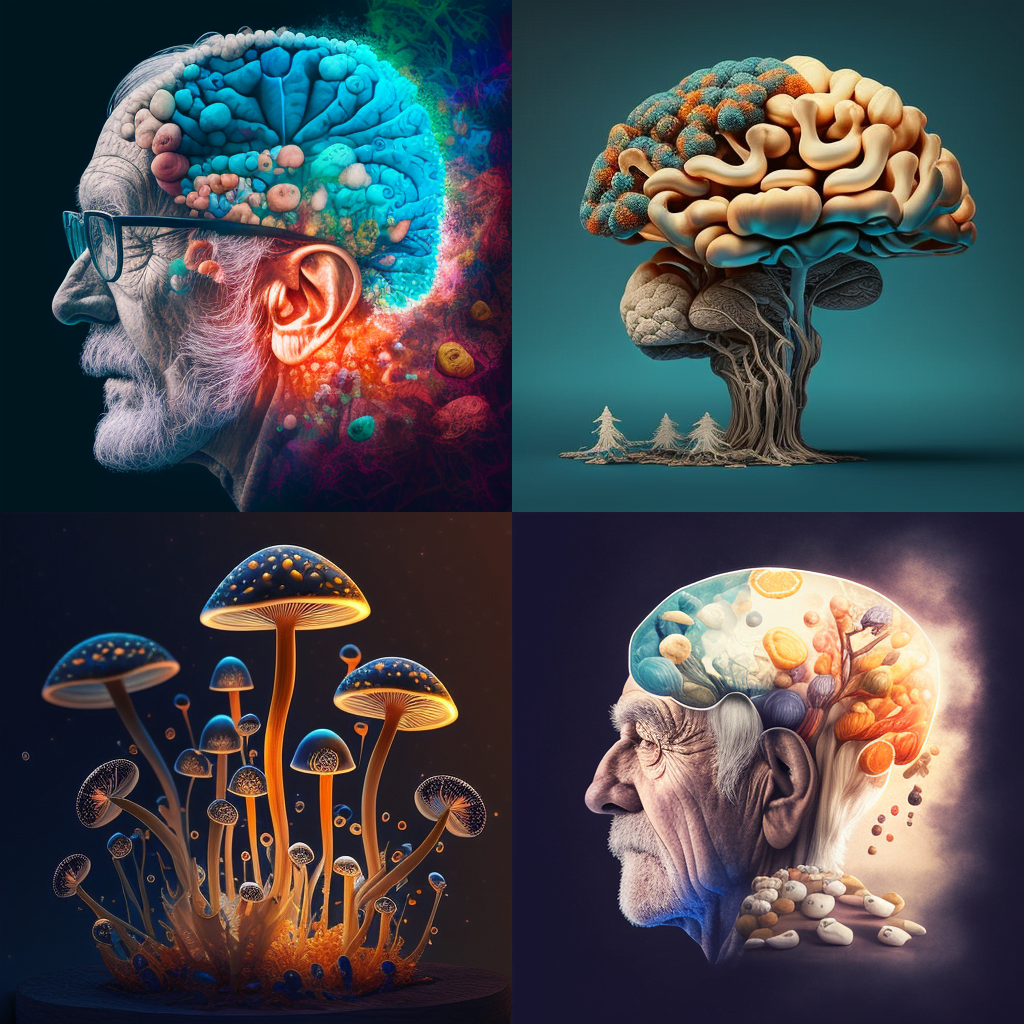
Age-related cognitive decline is a natural process that occurs as we grow older, affecting memory, attention, and processing speed. With an increasing aging population, there is a growing interest in finding effective ways to support cognitive health and prevent cognitive decline. Micro-dosing magic mushrooms, which contain the psychoactive compound psilocybin, has emerged as a potential avenue for maintaining cognitive function in older adults. This article will explore the potential benefits of micro-dosing psilocybin for age-related cognitive decline and the underlying mechanisms.
Age-Related Cognitive Decline: The Basics
As we age, our brain undergoes structural and functional changes, which can lead to cognitive decline. Factors contributing to age-related cognitive decline include:
- Decreased production of neurotransmitters
- Reduced synaptic plasticity and neurogenesis
- Accumulation of oxidative stress and inflammation
These factors can result in difficulties with memory, attention, processing speed, and executive functioning.
Psilocybin’s Impact on the Brain
Psilocybin, the active compound in magic mushrooms, interacts with the brain’s serotonin receptors, specifically the 5-HT2A receptor. This interaction can lead to alterations in cognition, perception, and mood. Research has shown that psilocybin may have neuroprotective and neuroplastic effects, which could potentially counteract some of the factors contributing to age-related cognitive decline.
Potential Benefits of Micro-Dosing Psilocybin for Age-Related Cognitive Decline
Enhanced Cognitive Function
Micro-dosing psilocybin may improve cognitive function in older adults by promoting cognitive flexibility, attention, and memory. This could help to maintain cognitive abilities and slow the progression of age-related cognitive decline.
Increased Neuroplasticity and Neurogenesis
Psilocybin has been shown to promote neuroplasticity and neurogenesis – the growth and development of new neurons. By enhancing these processes, micro-dosing psilocybin may help to counteract the natural decline in brain function associated with aging.
Reduced Inflammation and Oxidative Stress
Micro-dosing psilocybin may help to reduce inflammation and oxidative stress in the brain, both of which have been implicated in age-related cognitive decline. By reducing these harmful factors, psilocybin may support overall brain health and cognitive function in older adults.
Future Research and Considerations
While the potential benefits of micro-dosing psilocybin for age-related cognitive decline are promising, more research is needed to fully understand the mechanisms and long-term effects of this practice. It is essential for individuals to consult with a healthcare professional before considering micro-dosing psilocybin, especially for older adults who may have pre-existing health conditions or take medications.
Micro-dosing magic mushrooms may hold potential for supporting cognitive function and mitigating age-related cognitive decline. By enhancing cognitive function, promoting neuroplasticity and neurogenesis, and reducing inflammation and oxidative stress, micro-dosing psilocybin could be a promising avenue for maintaining cognitive health in older adults. However, further research is needed to validate these findings and establish guidelines for safe and effective use.